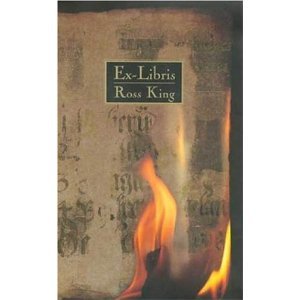What do you think?
Rate this book


392 pages, Unknown Binding
First published January 1, 1998
I had an unpleasant sensation between my shoulder-blades, as if some great bird had perched there and was slowly champing its beak and unfolding a pair of sooty wings. There was something sinister and dangerous about the way the houses in Seething Lane, beyond the gate, seem to crouch together in the darkness. - page 197
As I moved towards the shelves I could see that many of the volumes—or their bindings at least—were of considerable value. Here were fine morocco leathers of every colour, some gold-tooled or embroidered, others decorated with jewels and precious metals. A number of the vellums had buckled, it was true, and the morocco had lost a little of its lustre, but there were no defects that a little cedar wood oil and lanolin couldn’t mend. And the jewels alone—what looked to my expert eye like rubies, moonstones and lapis lazuli—must have been worth a small fortune. -page 21
Books such as those of Galileo and Copernicus were meant to stir up debates among scholars and astronomers, he insisted, to challenge old prejudices and enlighten the ignorant, to work towards a great insaturation of knowledge. Whatever wisdom they might possess became dangerous only when it was hidden away from the rest of the world—hidden away by the secretive few who, like the cardinals in the Holy Office, wished to rule like tyrants over the many. -page 106